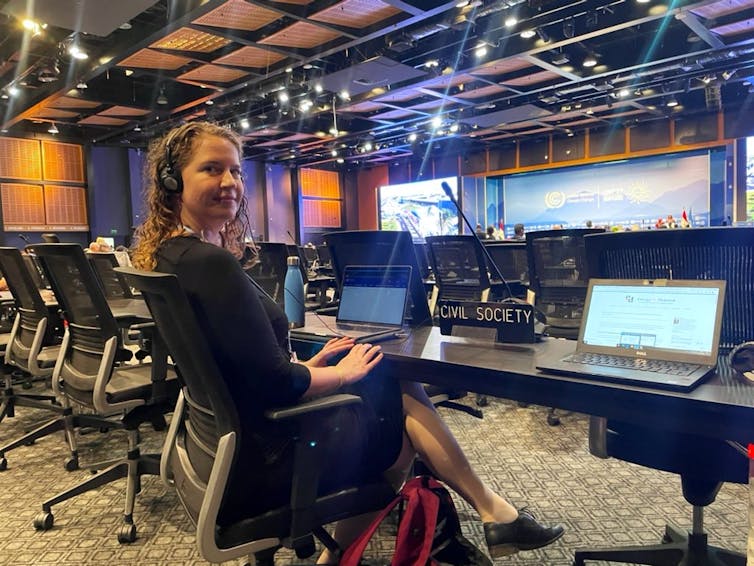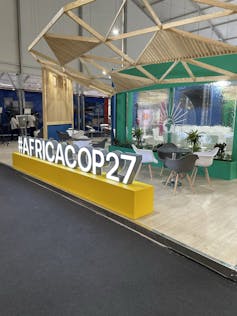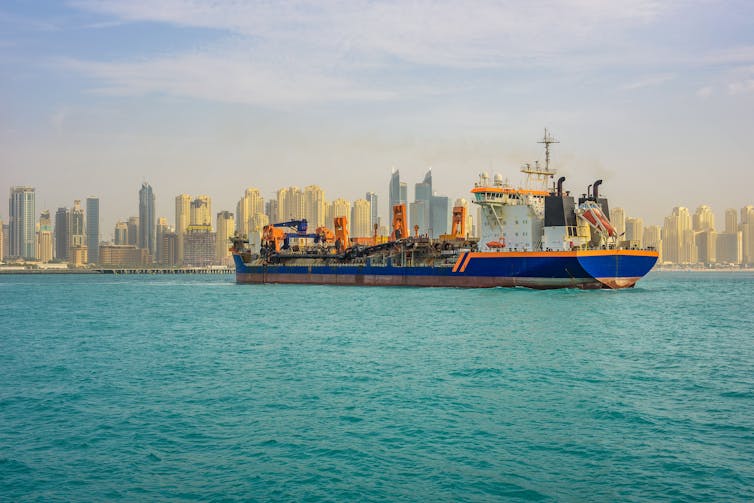 |
One of the privileges of being a student at the University of Bristol (UoB) is belonging to a diverse academic community comprised of students from many cultural, social and religious backgrounds. With the hosting of COP27 in Egypt this year, the Sustainability Network sought the opportunity to gain insight and perspectives first-hand from Egyptian UoB students around the significance and implications of the climate change focused conference being hosted in their country. Below is a recount of the respondents’ views and opinions.
Disclaimer: Views do not represent the University of Bristol nor the Sustainability Network. Names have been removed to protect the anonymity and privacy of the students who chose to speak.
The significance of climate change
Climate change is one of the most important issues the world is currently facing and will have wide ranging impacts that will influence our daily lives. Climate change, however, is often viewed as a future concern to be dealt with later – despite consequences and impacts thereof already being felt globally and locally making it a current and time sensitive issue. Climate change is also a complex, intersectional issue which coincides with issues of race, class, gender and inequality to name a few. The importance of speaking about climate change, even as non-experts, was highlighted by respondent A. Ultimately, as shared by respondent C, when thinking about climate change, we need to remember that the Earth is our only home (for now) and should be treated with care as we are borrowing it from future generations.
Climate change and Egypt
All respondents shared that either they themselves, or their families, have directly been affected by the impacts of climate change in Egypt. Respondent C shared that when speaking to parents and grandparents about the historical climate of Egypt, many changes to patterns and averages can be observed. This is in line with the scientific evidence that extreme weather events are getting more frequent, severe and widespread. Recurrent examples of climate change risks for Egypt mentioned by respondents and aligning to scientific consensus include:
Heat – Extreme temperatures driven by global warming impact the physical heat tolerance of individuals as well as affects infrastructure and agriculture negatively. Unlike other regional players who have the financial capacity for adaptation measures such as ubiquitous air conditioning, Egypt has less financial and infrastructural resilience to this concern.
Water scarcity – Water supply is a major a concern given climate change driven changing rainfall patterns in what is already an arid country. This issue was linked to regional geopolitical issues such as the contentious building of dams in nearby countries that alter regional water availability patterns.
Food security – The climate change risk to agriculture as a livelihood as well as for food availability was highlighted. The transboundary nature of climate change was reiterated as negative impacts to agriculture could affect food exports such as citrus and grains, thereby impacting global food supply chains. Should agriculture be detrimentally impacted, the cost of food associated with increasing food import dependency for Egypt would also impact local Egyptian food security as food would become less affordable.
Flooding – The threat of sea level rise as well as storm related flooding is of major concern, with many locations having limited financial and infrastructural adaptation capacity, thus posing a risk to infrastructure and human lives. The concerns of climate change refugees and regional migration motivated by climatic and economic variables were brought out in these discussions, once again demonstrating the global scope of climate change concerns.
Air pollution – Air quality, particularly in densely populated areas, is a major concern. Respondents attributed this to overpopulation, major car usage prevalence and general city congestion. Air pollution has health concerns as well as impacts natural weather patterns.
Despite first hand experiences and the extreme risks faced by many communities – particularly coastal communities such as Alexandria and densely populated regions such as Cairo – many respondents noted that climate change has not been a major focus for the Egyptian government over the past few years. This was perceived to be a result of conflicting urgent priorities such as unemployment, healthcare, poverty and education, as well as limited financial capacity and/or political will to address climate change simultaneously to these issues. It was pointed out that there are often financial incentives behind government investment decisions, with money often only being invested into projects that would see immediate returns. Others pointed out, however, that there has been significant progress made over recent years including reductions in plastic consumption, better waste management, investment into sustainable energy sources and biodiversity protection programs. Concerns around political stability and corruption hampering climate change action were noted – in line with the concerns of many LEDCs (Less Economically Developed Countries). The links between climate change and social disparities were demonstrated as the poorest and most vulnerable people would likely be impacted by climate change first.
The COP27 Conference
Respondents shared mixed feelings about the hosting of COP27 in Egypt. On one hand, this event does represent a significant geopolitical win and the bringing of Egypt and the MENA region to the global stage. This was a source of great pride to respondents, as representation of non-western countries in these typically Eurocentric global discussions was viewed to matter greatly. Moreover, the potential benefits to tourism and shaping of perceptions of Egypt as an innovative, up-and-coming and metropolitan country were seen to be positive. On the other hand, some respondents shared concerns about the efficacy of previous COP conferences and noted that the event tends to be overhyped and lead to very little meaningful impact – with goals of previous conferences such as a 1.5⁰C warning reduction targets not on track to being met. The risk of the conference becoming a blame-game or having little effect on the behaviour of large corporations that hold significant power were also mentioned. This COP conference is therefore viewed a make-or break opportunity in the climate change battle. Hopes for the setting of ambitious standards and legal precedents were shared. All respondents concluded by hoping this conference would be different and better than previous conferences, leading to tangible change and positive outcomes. (see the Sustainability Network Post-COP debrief for a reflection on the conference).
Looking forward
So where to from here? Whilst climate change is a global issue that will affect different places in different ways, respondents noted that everyone has a role to play in reaching towards a common goal. Respondent A reflected on the importance of critical thinking and communication, reminding us that disagreement is a common phenomenon that can be leveraged to understand the opinions and perspectives of others. All respondents reflected on the importance of education and awareness surrounding climate change. There were concerns surrounding the influence that COVID-19, the Russia-Ukraine conflict and other socioeconomic or geopolitical current affairs may have on the success of climate change action.
Generally, respondents reiterated the importance of incremental change and encouraged action and implementation over policies and legislation. The importance of international collaboration was revealed, as movements are stronger when we all work together and leverage the unique strengths of individuals and countries alike. Respondent C encouraged us to hold governments accountable, because as they pointed out, if we don’t, who will? The success of the COP27 conference will likely only be seen retroactively over longer time scales, so whilst one respondent urged dramatic outcomes and action to come from the discussions, another respondent viewed success as even one person acting better.
—————————–
The Sustainability Network thanks the respondents for their time, honesty and patriotism. The kindness, care and passion of the Egyptian people was well demonstrated and we definitely want to visit the incredible beauty and culture of Egypt you shared with us.



